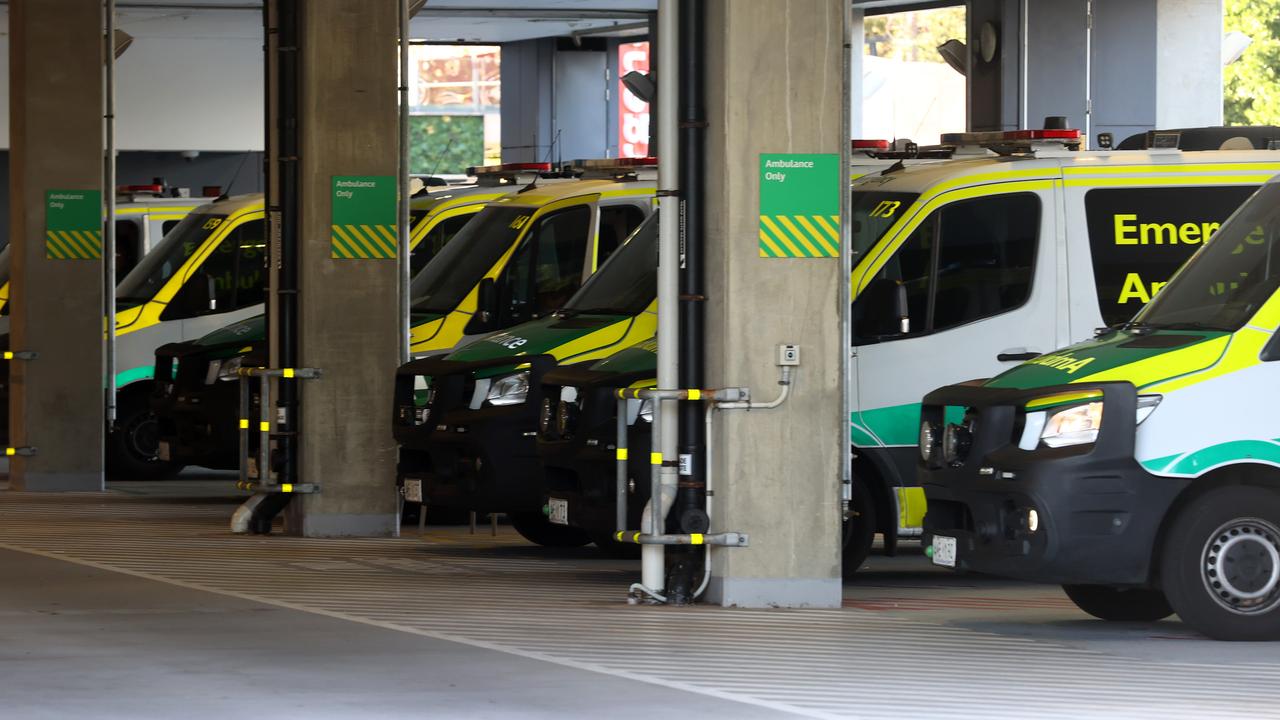‘Adelaide Score’ poised to cut ramping, save millions of dollars
The homegrown “Adelaide Score” using AI to speed up patient discharge has proved successful – and now the Adelaide name could be used to cut ramping in hospitals worldwide.
SA News
Don't miss out on the headlines from SA News. Followed categories will be added to My News.
A breakthrough method to predict when patients will be ready for discharge using artificial intelligence could cut ramping and save SA Health millions of dollars a year, results of a trial indicated.
The locally developed system known as The Adelaide Score was trialled at the Lyell McEwin Hospital and researchers say it:
Reduced patients’ length of hospital stay by 6.5 per cent;
Reduced hospital readmission rates by 2.1 per cent;
Resulted in cost savings of nearly $750,000 in the four-week trial, or nearly $10m over a year.
The results come amid ongoing record ramping, with 5284 hours lost in August after 5539 were lost in July, despite the state government’s core election promise to “fix” ramping.
The Adelaide Score accurately predicts when surgery patients should be ready for discharge, freeing up scarce beds rather than having patients medically fit for discharge waiting until being signed out.
Patients would still need to be physically assessed as ready for discharge but the Adelaide Score would radically streamline the process by calculating exactly who is ready to go home and when.
Paperwork and clinicians could be prepared knowing who is likely to be ready to leave at any given time, making beds available, getting patients back to their own homes faster, and easing strain on crowded EDs.


The landmark study was led by Associate Professor Stephen Bacchi, a Neurology Fellow and AI expert at the Lyell McEwin Hospital.
“The Adelaide Score uses information that everyone treated in hospital has recorded,” he said.
“It uses artificial intelligence to predict whether a patient will be discharged in the next day.”
Dr Joshua Kovoor, the doctor who led the creation of the Adelaide Score in his PhD, said: “The length of stay and readmission rate improvements frees up beds for emergency patients and reduces ambulance ramping.”
Researcher Dr Brandon Stretton who works at the Royal Adelaide Hospital and has experienced the ambulance ramping crisis first-hand said the Adelaide Score will help address this, and give large savings for taxpayers.
“This will ease pressures on our hospital, and will allow the health budget to direct resources to help patients in need,” he said.
These benefits are safe and reliable, says Dr Aashray Gupta, PhD candidate with the University of Adelaide.
“Not only will patients get home quicker, but they will also come back to hospital less often, which is better for both patients and the healthcare system.”
The Adelaide Score is supported by more than 100 leading Australian doctors, scientists, and AI experts according to Dr Alexander Beath, a Victorian doctor involved in the initiative.
“The Adelaide Score has broad support and all the ingredients for future success,” he said.
The trial’s findings are in submission for publication, and have national and international implications, with plans for use elsewhere already underway — while giving the “Adelaide” name positive publicity as a bonus.






